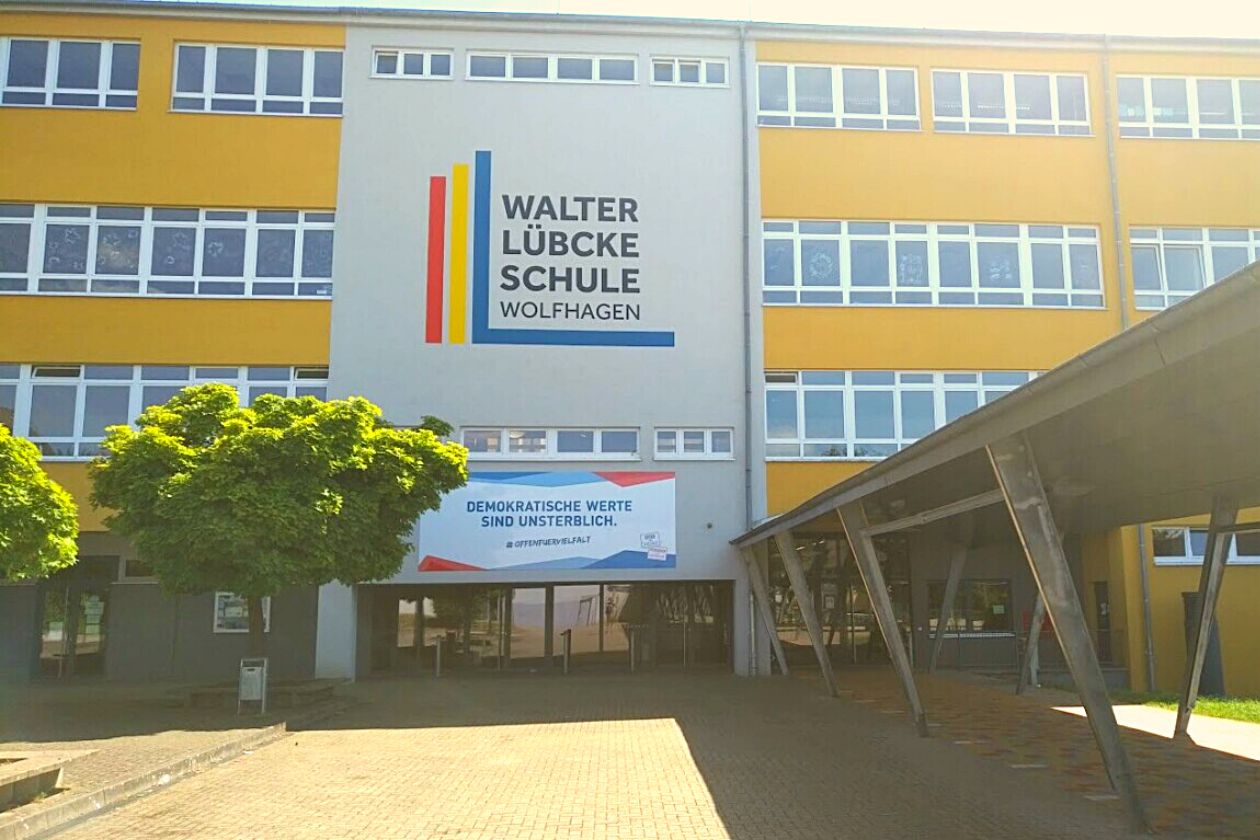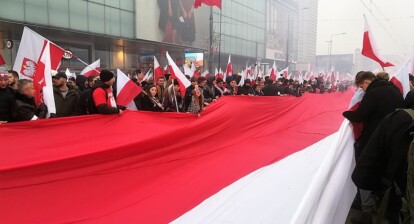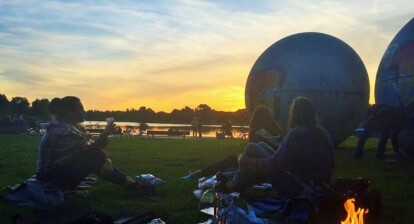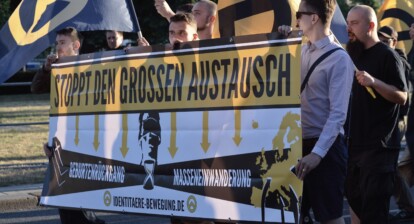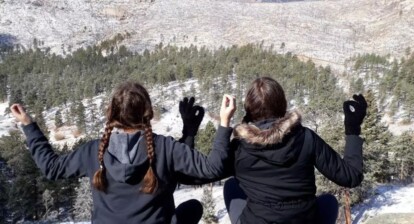On June 1st, 2019, a murder took place in the municipality of Wolfhagen: A far-right terrorist shot the district president Walter Lübcke. It was the first murder of a German politician of this magnitude by right-wing extremists since WWII. The local school reacted quickly: An initiative from students and teachers succeeded in renaming it to “Walter-Lübcke-School” in 2020. This sign against far-right violence was followed by an anonymous bomb threat to the school in 2021. Our author Phillip spoke to Lukas, Noah and Darren, who were students in Wolfhagen at that time.
Far-Right Violence in my Hometown
When I graduated from school in 2014, far-right violence was something that hardly anybody associated with such a small and sleepy town as Wolfhagen. Of course, the NSU murders were already known at that time, one had been committed in the nearby city of Kassel. But this large series of murders that took place across Germany in the early and mid-2000s had little to do with everyday life around me. For students who attended school in Wolfhagen in the years 2019-2021 most certainly have a different perspective on far-right violence and how it shaped school life. To understand their thoughts and feelings, I spoke to three of them.[i] Lukas, who was school representative at that time and co-initiated the renaming. Darren, who only switched to the school in mid-2019. And finally, Noah, who took a critical stance towards the renaming process and the power of the parties involved.
Deadly Hatred
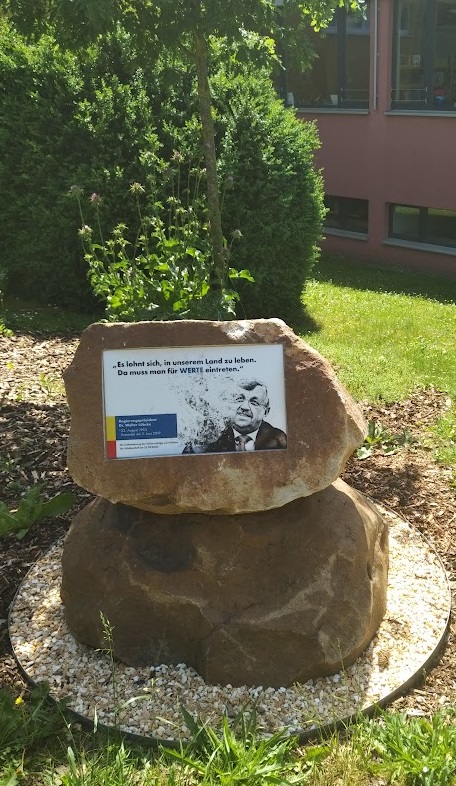
Monument erected in honor of Walter Lübcke on the school campus in 2020. The quoted two sentences were spoken by Lübcke during the citizens’ meeting: “It is worth living in our country. Here you have to stand up for values.” (Photo: private)
In June 2019, district president Walter Lübcke fell victim to an atmosphere heated up by fear of and hatred towards refugees. This was and is not unusual for Germany in the years after 2015. His subsequent murderer saw him at a citizens’ meeting nearby, at which Lübcke advocated to receive refugees – enough to led the right-wing terrorist to wild conspiracy theories and ultimately murder.
Darren knew about Lübcke’s advocacy before the murder. As a volunteer paramedic, he often talked with his colleagues about working at refugee centers and had heard about Lübcke’s statement at the citizens’ meeting. In contrast to that, Noah was not familiar with the politician at all. For Lukas, Lübcke was the father of an acquaintance. Even though he had met him only once, he could tell that the politician was a down-to-earth person, genuinely interested in the people of his region and “known to greet everyone in a friendly manner.”
A Murder Next Door
However, it is not only his own connections to Lübcke that Lukas emphasizes when talking about the politician, but also “how close the murder happened to the own front door.” Since a Kirmes (small fair) was taking place at the very night of the murder, Lukas was in Lübcke’s home village and even parked in the street of the politician’s house – only to hear the terrible news in the morning of the next day. This completely unexpected proximity to the assassination initially preoccupied Lukas and led him to the conclusion “that now in every sleepy backwater, places you used to feel safe, some idiot can come around the corner and kill a family man and grandfather-to-be.”
Shock, Disbelieve, Horror
Shock, disbelieve and horror are also emotions Noah and Darren share when talking about the murder. “I heard about the murder of politicians for their opinions in history classes about the Weimar Republic, but never in today’s Germany”, as Darren puts it. Noah concludes that “when I saw the video [of Lübcke’s statement at the citizens’ meeting], I realised how cautious a politician has to be about what he says in this country, otherwise it can have terrible consequences”.
The First Renaming Attempt
Before turning to the renaming process, it is worth looking at how the school’s name was previously handled. Since its foundation, it had been “Wilhelm-Filchner-School”. During my school days, the person Wilhelm Filchner, a scientist closely connected to the Nazi regime, was relatively unknown among the students. This impression is shared by Noah, who says that in 2019 “Lübcke was as just as unfamiliar to me as Wilhelm Filchner.”
In contrast to most other students, Lukas already knew the background of Filchner in 2019 quite well. A few years ago, some members of the student council had done an internship in the Hessian state parliament and were shocked when they were asked about the researcher’s Nazi connections. They weren’t aware of his story beforehand and started an initiative to rename the school. In doing so, they found support in some teachers who had already pointed out the naming problem in the 2000s. The initiative failed due to the school’s lack of willingness to change its name for several reasons, although Filchner was now viewed more critically.
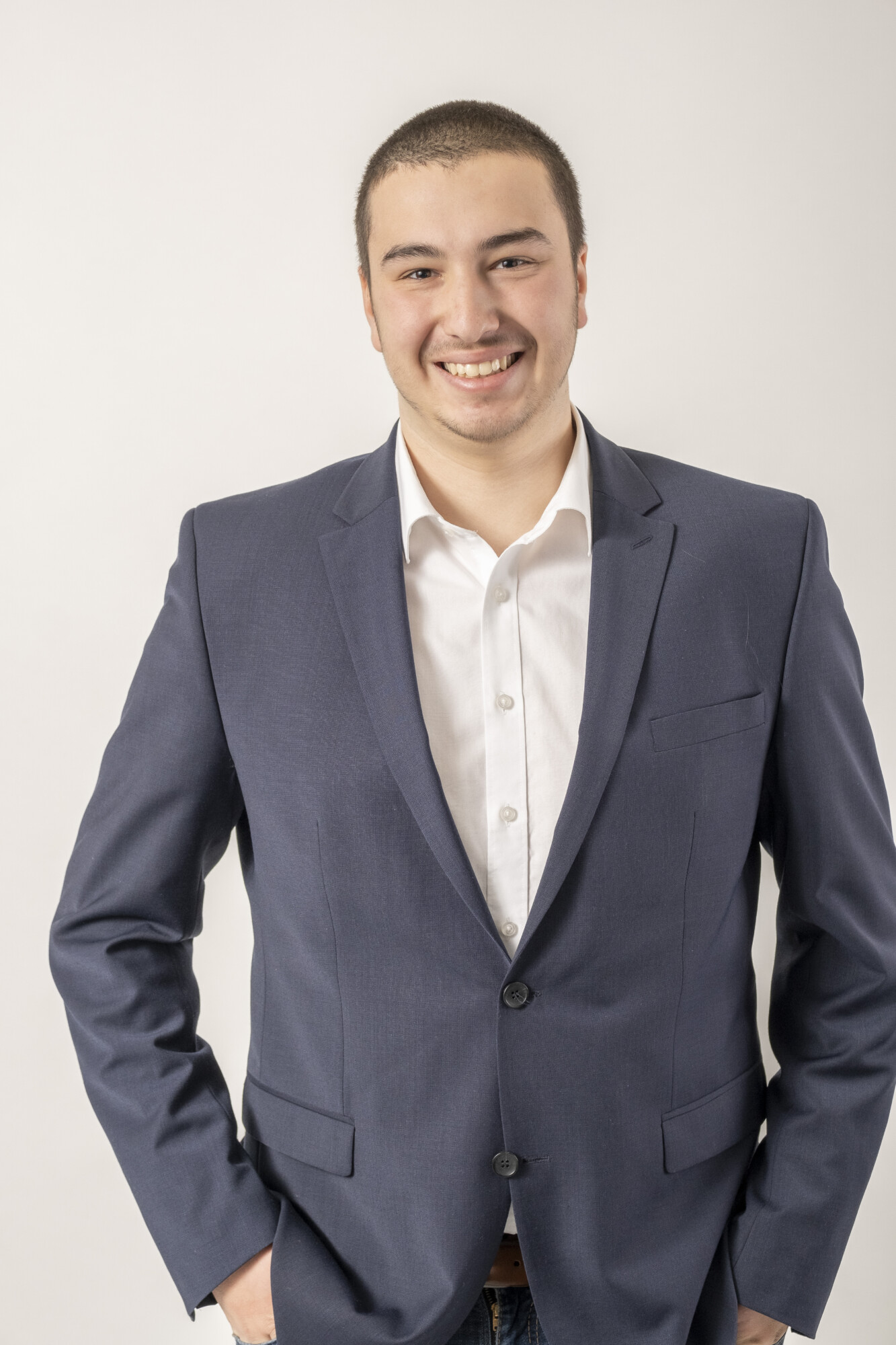
Lukas is used to telling about the successful renaming, in which he played a major role as school representative. (Photo: private).
Story of Success I: The Idea
Obviously, the two topics – the controversy about Filchner as a namesake and the shock over the murder of Lübcke – were initially completely separate debates. Whereas Noah and Darren viewed the process from the outside, Lukas was co-initiator of a project that combined both topics and was ultimately successful in summer 2020.
The story he tells (with a bit of pride in his voice) goes something like this: Shortly after the murder, Lukas, who was already school representative at that time, talked to a colleague from the student council: “We said to ourselves, something like this just can’t happen and now we have to be even louder – at that moment it clicked, and we were like ‘wait a minute, we want to rename our school anyway!’” Although the school management had previously been sceptical about renaming, this time they were immediately enthusiastic about the plan (“best idea I ever heard from the student council”). The only preliminary condition was that first the family of the murdered was asked for permission, which was eventually given.
Story of Success II: Putting in The Work
With this starting position, the different representative bodies of students, teachers and parents at the school had to be convinced, because the school management couldn’t make such a decision on its own. This required a comprehensive information campaign, “since we didn’t want that in five years people start to ask ‘who was Walter Lübcke again?’”, recalls Lukas. Besides, it was necessary to create space for discussion. Not only did that mean to argue against more conservative voices among teachers, but also to listen to the fear of some parents that renaming the school would make them a target for another attack. “We considered that fear very carefully, but our project meant to loudly support the statement of Lübcke: to not get silenced by far-right violence”.
Story of Success III: Winning The Majority
In the end, a clear majority of students, teachers and parents agreed to the renaming. After this process was completed in February 2020, the decision of the school community had to be approved by the responsible district council, which took place in June. In September of the same year, the success was celebrated in a festive ceremony at the new Walter-Lübcke-School.
Why Not ,Democratic School Wolfhagen’?
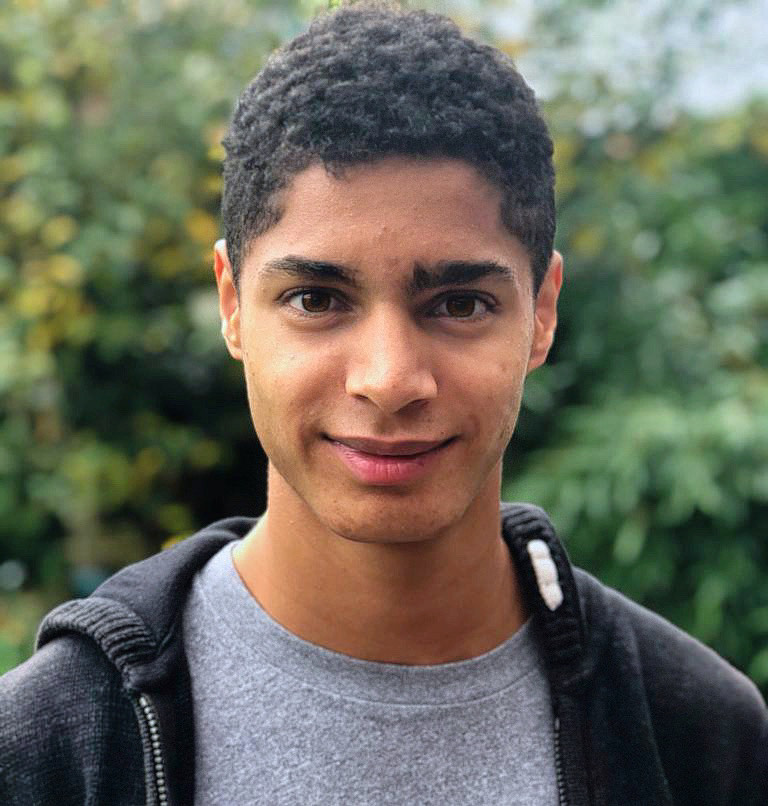
Noah would have liked a more open discussion during the renaming process and a neutral new school name. (Photo: private)
The fact that all the students were sufficiently involved is also seen differently. Even though Noah praises the approach of making the renaming dependent on the consent of Lübcke’s family, he felt that arguments against a Walter-Lübcke-School were not equally heard: “After some conversations on the subject, I tended to go with a neutral name. Not a person, but something based on values. There are always arguments against specific persons, but values are shared more often. Isn’t the whole renaming about democratic values? So, why not ,Democratic School Wolfhagen’? This idea [to go for a neutral name] was also very popular among teachers. However, the leading students behind the renaming and some teachers close to them neither wanted nor accepted it and worked against it.”
“The Debate Itself Was Little Democratic”
For Noah, some actions within the renaming project went hardly democratic. Younger students in particular were barely informed about the matter but fobbed off with simple explanations and guided rhetorically to support the name Walter-Lübcke-School. There were rumours about pressure among the teachers not to oppose the new name. “If the debate had been more open, many more would have been naturally convinced. The debate itself already risen skepticism about the renaming project.”
“Broad Support From Everyone”
Lukas contradicts. He argues that controversial opinions of students, teachers and parents were heard, but did not find a majority. In addition, simplifications for younger students were unavoidable to give them access to the topic at all. However, he states that it is a completely normal process in a representative democracy that elected representatives, such as the student council, take on tasks for the entire student body. A small group taking responsibility for a project is therefore just the way the system works and “if the project hadn’t had such broad support from everyone, the renaming would have failed as it happened before.”
The Bomb Threat I: “I Wanted to be Even Louder”
No matter how the students felt about the renaming, a bomb threat as reaction to it in early 2021 was horrifying for everyone. Lukas, who was in close contact with the school management, describes his feelings when reading the threatening e-mail: “At first I was in shock. But then I wanted to be even louder. Surely it cannot be that a school is threatened. That children are threatened who stand up for values that we should all live by, because that is actually what our country, our democracy stands for and what we should be proud of.”
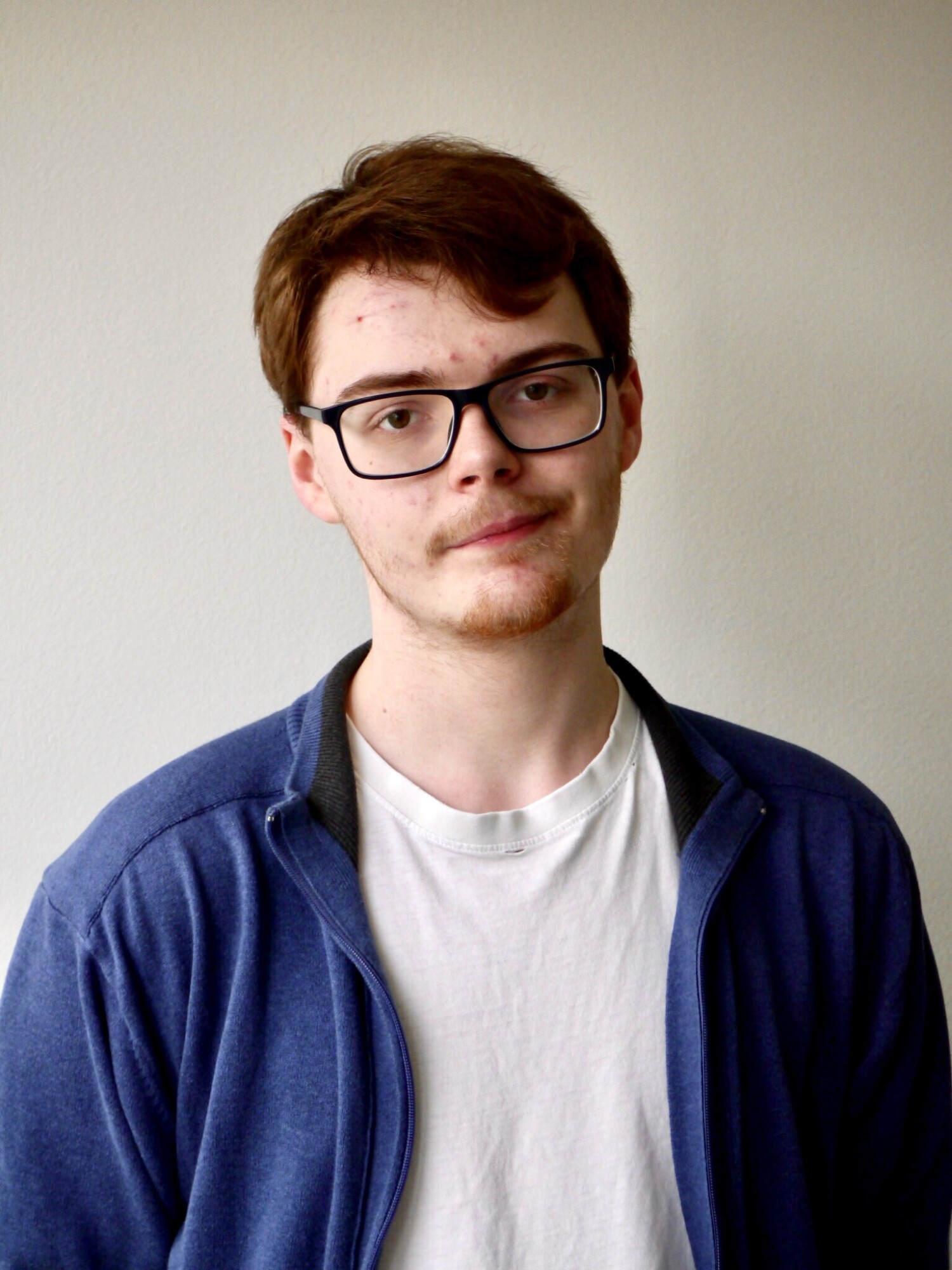
Darren stresses that he wasn’t afraid after the bomb threat but vigilant. (Photo: private)
The Bomb Threat II: “I Was Not Afraid”
Meanwhile Darren, who learned about the bomb threat from the TV news, was only little surprised: “We all expected this, and it had to be expected. If we change our name, we will be attacked. I was not greatly shocked, I rather thought ,now the moment has come’. But I was not afraid. Because I strongly believe in government structures – police and state security work, despite everything that went wrong many attacks are prevented by them.”
The Bomb Threat III: “There Could be New Attacks”
Noah reacted with more anger and incomprehension and sees serious mistakes made by the school administration: “Honestly, what I expected happened. Already at the info events before the renaming, one man had asked about the safety of the school [regarding a new attack by right wing terrorists]. And when the bomb threat was there and the principal wrote an e-mail to the students, it seemed to me as if he wanted to play down the whole thing. Something like ,you don’t have to take it so seriously’. Many others saw it the same way I did. And I still have the impression that if the school continues to send such strong signals, there could be new attacks.” Noah likes the renaming in principle, but it bothers him how few safety precautions were taken in the process.
Reconsidering The Story – And Democracy
Luckily, the threatened attack did not become reality and normality returned quickly. The bomb threat is no longer something that worries Darren, Noah and Lukas. Instead, what unites all three now is their clear attitude towards dealing with right-wing violence: It is important not to be intimidated or to cave into far-right extremism.
This does not mean that they are unaware of the danger involved. Noah is critical of making the school a possible target of right-wing violence. At the same time, he says: “But that’s also democracy, those are democratic values. Position yourself, stand up for something, that’s exactly what we want to achieve in a democracy.” He is very concerned with the tension between advocacy against right-wing extremism and the danger of a new attack.
Lukas has more of a fighting spirit: “Democracy is no longer a matter of course these days. We must stand up for values. If we back down and keep our mouths shut, those who want to intimidate us win.” For Darren, showing democratic values openly is already a small victory: “If you actively stand up for values and a mass of people do it, then maybe the right-wing extremists feel that they are the clear minority. That’s why it’s important to never duck away.”
[i] The interviews were conducted in German in individual conversations using Zoom. In the following, I paraphrased Darren’s, Noah’s and Lukas’ answers or analogous translated certain quotes into English.

